- Home
- Catherine Jinks
Theophilus Grey and the Traitor's Mask Page 3
Theophilus Grey and the Traitor's Mask Read online
Page 3
‘Aye, your honour. She lives in Windsor Court, off Drury Lane.’ Philo had often been hired by Mrs Cowley, thanks to the late hours she kept. Though employed at the Theatre Royal, she had never been given any leading roles. But she was always beautifully dressed, so Philo assumed that she made a good living.
‘Mrs Cowley is a lady of immense talent,’ said Mr Bishop. ‘She has been very useful to me, and I’m persuaded she will be very useful to you. I have arranged that you should visit her tomorrow – or should I say today? At two o’clock this afternoon.’
‘Visit her?’ Philo stopped in his tracks. By this time they were in Clare Market, opposite the tripe-house. ‘You want me to follow her? Watch her?’
‘Nay, lad – she is expecting you. She has much to impart.’ With a jerk of his chin, Mr Bishop indicated that Philo should keep moving. Then he said, ‘Mrs Cowley is convincing in almost every role she chooses to play. ’Tis a gift I should like you to acquire, if we are to continue our association. That is why she has agreed to teach you some of her tricks, as a kindness to me. For she knows all the shams in the business.’
‘Oh,’ said Philo. He didn’t know what else to say.
‘She is a delightful creature, whose company you are bound to enjoy,’ Mr Bishop assured him, before abruptly changing the subject. ‘What else can you tell me about Mr Johns and the Reverend Mr Gordon? Did you hear aught that might interest me, during your time with them?’
It took Philo a moment to collect his thoughts. They had left behind the two-storeyed market building, which was a small, square, brick structure, topped by a roof-lantern and surrounded by a hodgepodge of pens and stalls. Ahead of them lay Clement’s Lane, which smelled very bad at its western end because of the overcrowded graveyard tucked behind a row of butchers’ shops.
The stench of the graves was so foul that Philo picked up his pace, hoping to outstrip it. Then he began to recount what he’d heard on Essex Street.
‘Mr Johns asked the Reverend if he would be attending Mr M. tomorrow, since Lord C. was planning a procession. Then he said he’d been invited to share Mr V.’s carriage.’ Philo glanced up at Mr Bishop, whose face remained expressionless. So Philo continued, ‘He said that the procession would end at Henrietta Place, where Lord Elibank would welcome it. He also mentioned the Duke of Newcastle.’
‘Did he indeed?’ The Duke of Newcastle was Mr Bishop’s employer. It didn’t surprise Philo that this particular bit of news made Mr Bishop prick up his ears. ‘In what context, pray?’
Philo consulted his mental ledgers, then began to recite Mr Johns’s remark word for word. ‘He said, The Duke of Newcastle will be able to hear it from his bedroom window. No doubt that was Lord C.’s intention.’
‘No doubt it was,’ Mr Bishop muttered, swerving to avoid the Clement’s Lane pump.
‘But what does it mean, sir? Who is Lord C.?’
‘He is Lord Carpenter. A notorious Jacobite.’ Mr Bishop pursed his lips; it was the closest he ever came to a grimace. ‘Mr V. is almost certainly George Vandeput, and Mr M., of course, is Alexander Murray. A fine collection of varlets.’
‘And their procession?’ asked Philo.
‘Aye – their procession. Let me tell you about that.’ Mr Bishop’s sidelong gaze flickered across the shuttered façades that surrounded them, noting every chink of light, before he finally explained in a hushed voice, ‘You may recall that Mr Vandeput was the anti-government candidate during the last Westminster by-election. Alexander Murray is a supporter of Mr Vandeput, and was accused of raising a violent mob against Mr Vandeput’s opponent. When brought before the House of Commons, Mr Murray was charged with contempt, and committed to Newgate Prison – where he has been residing these past six months. But thanks to the efforts of a certain member of parliament, Mr Murray’s release is being secured. It will probably take place this afternoon. At which time we may expect much rejoicing among the Jacobites.’
Philo absorbed this story in silence, trying to put faces to names. He remembered the last by-election very well. Covent Garden had been in an uproar for weeks; there had been fights and threats and accusations. It was well known that the government candidate had been supported by the Duke of Bedford, who happened to own Covent Garden. So at least a hundred and fifty plumbers, carpenters and bricklayers – all employed by the Bedford Estate – had descended on the hustings to menace anyone likely to cast a vote for George Vandeput.
When Mr Vandeput had lost the election, he’d demanded a ‘scrutiny’ of the results. But it hadn’t done him any good.
‘And Lord Elibank?’ Philo asked. ‘Is he another Jacobite?’
‘He is Mr Murray’s brother,’ Mr Bishop replied. ‘I tell you all this, Theophilus, because you need to know about Mr Murray. He is a firebrand who believes that he has been ill-used by the government. I fear what he might do, once he has his freedom. My intention is to keep a close watch on him – and on all those with whom he associates. Including Lord Elibank, Mr Vandeput and Lord Carpenter.’
Mr Bishop fell silent for a moment as they passed the watchman’s box at the end of Old Boswell Court. But the box stood empty; the watchman must have been out on his rounds. Seeing this, Mr Bishop quietly remarked, ‘My employer has reason to believe that Mr Murray lent several hundred pounds to the Young Pretender, and that Lady Primrose was involved in the transaction. Therefore we may safely assume that she, too, will be spending time in Mr Murray’s company. The more we find out about their meetings, the better.’
‘But sir …’ Philo’s heart quailed at the prospect of trying to track all these lords and ladies, most of whom probably lived miles away. ‘Henrietta Place – why, that lies beyond Oxford Market!’ he finally blurted out. ‘And I’ve never been further west than Soho Square!’
‘Shhh.’ Mr Bishop briefly placed a hand on Philo’s shoulder, his touch so light that it felt like a breath of wind. ‘Calm yourself,’ he said. ‘I’ll not make unreasonable demands. That is why I have engaged Mrs Cowley. She will equip you with many of the skills you’ll need if you are to follow the movements of Mr Murray and his circle.’ Before Philo could ask exactly what these mysterious skills might be, Mr Bishop added, ‘What else have you to report? Did you or your boys see aught of interest, these past few days?’ Philo was confused by this sudden change of tack. He had to think for a moment as they emerged onto Butcher’s Row, which was surprisingly busy. To Philo’s left, a Masonic Lodge meeting had broken up; its members were pouring out of the Bear and Harrow alehouse. To his right, the Lamb Inn was also emptying. So Philo remained silent until he and Mr Bishop had crossed the street.
It wasn’t until they had ducked down the narrow stairway leading to St Clement’s church that Philo finally delivered his report – which mostly concerned Jacobite tunes, symbols, passwords and pamphlets. In Coal Yard, Dandy Dodds had heard a book-binder singing ‘The King shall enjoy his own again’. In Russell Street, Kit Maltman had spotted a portrait of the Young Pretender hanging in the window of a print-shop. In Bloomsbury, Philo had seen a suspicious broadside ballad nailed to the wall of a tavern.
‘I cannot tell you the name o’ the song,’ he confessed with a blush – for he was still struggling to learn his letters. ‘But there was a knot o’ white ribbon pinned to it.’
Mr Bishop grunted. The white cockade was a Jacobite emblem; the Young Pretender had been known to wear one on his hat. Philo was about to remark that the ribbon had been yellow with age and tobacco smoke when he turned into St Clement’s churchyard, and found himself within hailing distance of the Strand.
‘Here we are,’ said Mr Bishop, fishing in his pocket for a half-crown. ‘By the by, your boy Dandy seems to have disappeared. He has a remarkable face, has he not? Quite angelic.’
‘Aye, sir.’
‘You should station him in Essex Street tomorrow. I’d lay odds no one would question his motives – not with a face like that. And I’m inclined to think Lady Primrose’s house will be busier than usual, thanks to Mr Murr
ay’s imminent release.’ Hearing no response from Philo, Mr Bishop shot him a probing look. ‘Would you consider having Dandy Dodds replace you? It might foil Wat Wiley and his gang, if you was to send in a different linkboy.’
Still Philo didn’t answer. He was too busy staring at a sedan chair that had stopped by the coach stand up ahead. Though one of the chairmen was a stranger, Philo recognised the other one. It was the Scotsman with the purple nose.
And he was talking to Philo’s old friend, Valentine Brody.
OF PHILO’S HOME,
HIS CREW, AND HIS DOUBTS
ABOUT A FORMER FRIEND
‘Valentine knows all the chairmen,’ Kit Maltman said, ‘and that coach stand is a busy one. Belike he was passing, and stopped for a word.’
Kit was sitting on his bed, in the garret that he shared with the rest of Philo’s crew. Though it was past midday, they had all been awake for less than an hour, because they rarely went to sleep until sunrise. In summer the nights were so short that Philo liked to keep working as long as he could. Then he would trudge home, kick off his shoes, and bury his face in his pillow, trying hard to ignore all the ringing bells, crowing cocks and yelling hawkers in the street outside.
Philo always found it hard to sleep during the summer, thanks to the heat. In winter his room was cosy enough; there were no cracks in the windowpanes, no chinks in the floorboards and no holes in the walls, so the heat couldn’t escape. With a lamp burning, and five boys sharing two beds, no one ever froze – especially when the downstairs neighbours lit a fire.
But in summer this advantage became a drawback. Pushing the damp curls off his forehead, Philo felt as if he was baking in a bread-oven. No breeze was blowing through the tiny casement window, though it had been left wide open. The door also stood ajar, but the space beyond it was a lightless passage, so no cross-draught stirred the warm, stuffy air.
Kit was the only boy still wearing a shirt. He’d clung to it because he was ashamed of his knobbly chest and swollen joints. (He’d had rickets when he was younger, and it showed.) The others – including Philo – had all stripped down to their breeches.
‘Why would Valentine peach on you, Captain?’ asked Fleabite Leadbitter, who was the youngest of Philo’s gang. Eight years old, skinny and red-headed, he was munching on the oatcake that Dandy had bought him for breakfast, his bony torso as white as a maggot against the smoke-blackened walls of the room. ‘He may give himself airs, but he’s no whiddler.’
‘He’s not,’ Philo agreed. ‘But there’s others who are.’
Kit frowned. ‘Who?’
‘Mr Hooke,’ said Philo.
Dandy hissed. He was perched on the bed next to Philo, nursing a mug of small beer – which was as weak as water, though much safer to drink. Sweat glistened on the scars that were strewn across his back and shoulders. Having been raised in the parish workhouse, Dandy had suffered his fair share of beatings, but the burns on his hands were more recent than his workhouse scars. Most linkboys had burns on their hands, caused by stray cinders. It was an occupational hazard.
Nor were they the only scars that Philo could see, as he glanced around the room. Though Kit was only twelve, he looked much older because of his broken nose, rotten teeth and pockmarked skin. Fleabite had been bought from a couple who trained up young boys as pickpockets, and who sometimes used a hard cane as punishment. Over in one corner, hunched beneath the slanted ceiling, Lippy Whittle sat with his hand over his mouth, trying to hide his hare-lip. Lippy’s disfigured face and thick, halting speech had made his life difficult before he’d met Philo; people had thought him an idiot, and he’d sometimes been forced to beg on the streets. But he wasn’t an idiot. And he had the kind of memory that Philo would have killed for.
Lippy could glance at any house, in any part of London, and tell you nine months later how many panes there had been in every window. He never forgot a name, a face, or a number. Thanks to Lippy, Philo was able to collect information without writing it down.
‘But Mr Hooke gets a shot of our takings!’ Lippy mumbled. At fourteen, he was nearly as big as a man, with broad shoulders and thick wrists. His grey eyes drooped at the corners, giving his face a mournful cast. ‘Why would he want you settled by a wharfside crew, Captain?’
‘Because he cares more about revenge than he does about the chink I give him,’ said Philo.
‘Aye, but Val don’t,’ Dandy protested. ‘Why would he?’
‘There’s no telling what Val wants, nowadays.’ Philo chewed on his bottom lip, his brow furrowed. ‘He works for Mr Hooke. He lodges with Mr Hooke. Would he baulk at betraying me if Mr Hooke paid him to?’
Fleabite shuddered. Dandy winced. Even Kit looked uneasy, because Garnet Hooke was someone they preferred not to discuss, though they had all spent time in his employment. It was Garnet who had raised Philo, after the death of Philo’s mother. It was Garnet who had taught him how to collect information, and how to sell it. Only half a year earlier, Philo’s entire crew had been living together in a room above Garnet’s lodgings, obeying Garnet’s orders and giving him their fees. Then Garnet had done something unforgivable, and Philo had struck out on his own.
Even worse, he’d taken four of his crew with him.
Garnet was still angry about that, though Philo had tried not to steal his old mentor’s business. He had built up his own list of clients, and always paid Garnet a percentage of the money he received from a certain customer who’d once been Garnet’s. But Philo knew that Garnet Hooke was just biding his time. Philo had lived in the man’s pockets for six years; he understood how Garnet’s mind worked, and felt sure that he hadn’t been forgiven.
What Philo didn’t understand was how Valentine Brody felt. Val had once been a member of Philo’s crew. The other boys had never liked him much, but Val and Philo had always got along. Since leaving Garnet, Philo had even thrown a bit of work Val’s way. If asked, Philo would have said that Val respected him.
So how could Garnet have persuaded Valentine to … to … to what, exactly?
Philo wasn’t quite sure what he suspected Val of doing. Val couldn’t have known that Philo had been straying into Wat Wiley’s neighbourhood. How could he?
‘You said Wat Wiley didn’t know your name,’ Kit suddenly observed. ‘He would have, if Val was peaching on you.’
‘Wiley didn’t use my name,’ Philo corrected. ‘I gave it to him. Whether he already had it or no, I cannot be certain.’
‘Aye, but if Wiley has your name, he may have ours too,’ Fleabite pointed out through a mouthful of oatcake. ‘How can you gull him if he knows about Dandy? What if you send Dandy to Essex Street, and Wiley sees him, and takes exception?’
Before Philo could answer, Lippy spoke up. ‘Send me to Essex Street,’ he growled. ‘If they want a fight, I’ll give ’em one.’
But Philo shook his head. Wat Wiley claimed to have friends on the wharves, and Philo didn’t want his boys brawling with any lightermen. England’s greatest boxer, Jack Broughton, had once worked on the flat-bottomed barges that patrolled the Thames – and there were bigger men than Broughton riding the river.
‘I’ll speak to Val,’ Philo announced. ‘I’ll look him in the eye and ask him what’s toward. If I go directly, I should catch him at his lodgings.’
Fleabite gasped. Kit fixed his great, dark eyes on Philo and said, ‘What if you meet with Mr Hooke?’
‘What if I do?’ Philo retorted. ‘I’m not scared o’ Mr Hooke.’
This wasn’t strictly true. Philo was scared of Garnet Hooke. But he didn’t want his team to know how he felt. They trusted him. They followed him. They deserved a leader who could stand up for himself – and for them.
‘So if I’m to get away quick, we must hasten our business,’ Philo went on. ‘What have you got for me? Fleabite? Give us the gist of it.’
Fleabite immediately launched into an account of his night’s work. Then Lippy followed with his report, and Dandy with his. Fleabite told Philo about a well-k
nown thief who had been seen walking into a plumber’s shop with a bag full of roof-lead. Lippy related how he had spotted a parish pauper strutting about in a crimson damask waistcoat, very similar to one listed as stolen in The Public Advertiser. Dandy had noticed a suspected pickpocket jostling a silversmith in Covent Garden, and Lippy had witnessed the same pickpocket several hours later, hovering in a crowd that had gathered to watch a boxing match outside the Green Man alehouse.
‘I know who was in that crowd,’ Lippy declared, then reeled off a dozen names, all of them familiar to Philo.
‘Good,’ said Philo with a nod. ‘So if any of ’em advertise for a watch or a wiper, we’ll know who’s to blame.’
He usually waited until stolen goods were advertised. Then he would pass his information on to a local thief-taker, who was always happy to give Philo a share of his reward money. If no one advertised, Philo would submit his intelligence to Mr Fielding, the Bow Street magistrate. Mr Fielding liked collecting anecdotes about London’s criminals, because he believed that even the smallest scrap of news was helpful in building a bigger picture.
That was why the reports made by Philo’s team often included general gossip. The rector of St Giles had been called to a deathbed in Lombard Court. A midwife from Drury Lane had visited a lying-in on Castle Street. A drunken ostler had beaten his wife unconscious in Craven Mews. These tidbits sometimes proved to be very useful, though Philo struggled to remember them all, even with Lippy’s help.
Philo’s problem was that he couldn’t take notes.
Since leaving Garnet’s employment, Philo’s biggest regret was that he hadn’t learned to write. Garnet had always written down any intelligence he received, and had then cross-checked it against old entries in his journal. He had also been able to read newspaper advertisements – something that Philo couldn’t yet do. Though Philo was slowly learning his letters, it still took him a long time to sound out all the words on a book cover or shop sign. Reading every advertisement in The Public Advertiser was beyond his powers. Instead, once a week, they were read to him by a friend called Nathaniel Paxton.

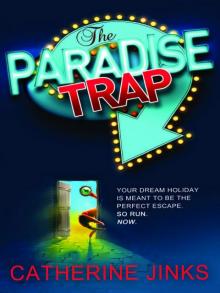 The Paradise Trap
The Paradise Trap A Very Singular Guild
A Very Singular Guild Eloise
Eloise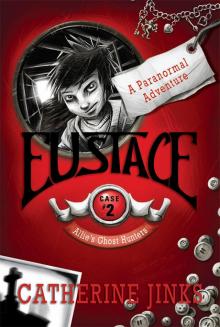 Eustace
Eustace A Very Peculiar Plague
A Very Peculiar Plague Pagan's Crusade
Pagan's Crusade The Gentleman's Garden
The Gentleman's Garden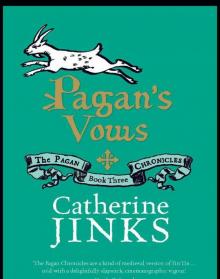 Pagan's Vows
Pagan's Vows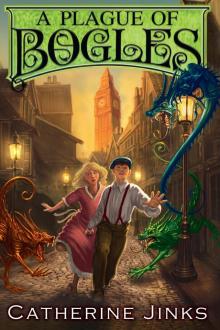 A Plague of Bogles
A Plague of Bogles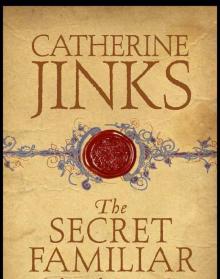 The Secret Familiar
The Secret Familiar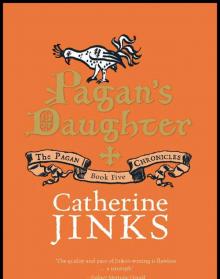 Pagan's Daughter
Pagan's Daughter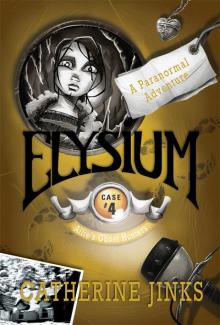 Elysium
Elysium The Reformed Vampire Support Group
The Reformed Vampire Support Group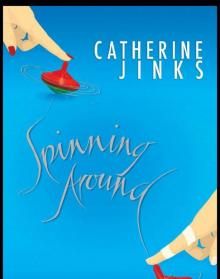 Spinning Around
Spinning Around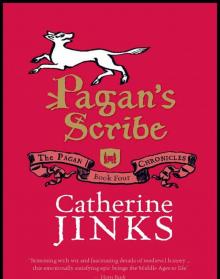 Pagan's Scribe
Pagan's Scribe Evil Genius
Evil Genius Pagan in Exile
Pagan in Exile Shepherd
Shepherd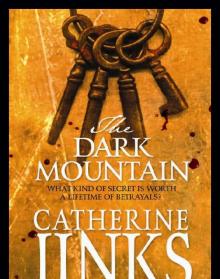 The Dark Mountain
The Dark Mountain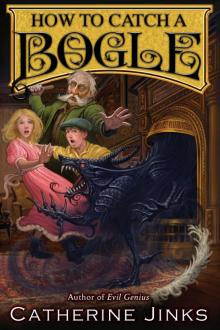 How to Catch a Bogle
How to Catch a Bogle Saving Thanehaven
Saving Thanehaven The Genius Wars
The Genius Wars The Abused Werewolf Rescue Group
The Abused Werewolf Rescue Group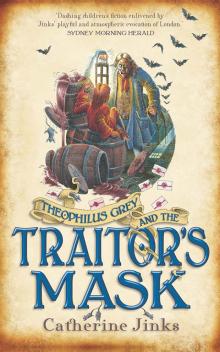 Theophilus Grey and the Traitor's Mask
Theophilus Grey and the Traitor's Mask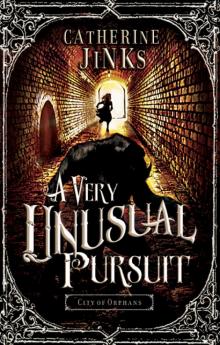 A Very Unusual Pursuit
A Very Unusual Pursuit Genius Squad
Genius Squad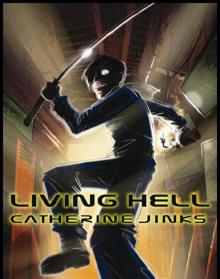 Living Hell
Living Hell The Road
The Road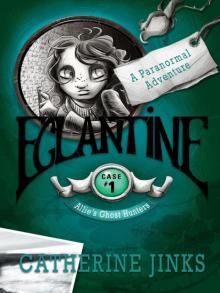 Eglantine
Eglantine